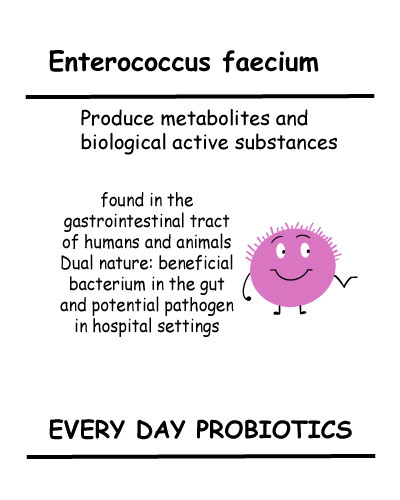
Enterococcus faecium
1 Kilogram(100 Billion CFU/gm)
Overview
found in the gastrointestinal tract of humans and animals
Dual nature: beneficial bacterium in the gut and potential pathogen in hospital settings
Function
Prevent pathogenic bacteria breeding by adhesion mechanisms and competition exclusion
Produce metabolites and biological active substances (bacteriostatic substances, L-lactic acid, enterocin E5, nonspecific immune adjustment factor, interferon, digestive enzymes)
nutrient metabolism: aids in the breakdown of complex carbohydrates and proteins
Health Benefits
Supports digestive health
Prevents and treats diarrhea: treats antibiotic-associated diarrhea and traveler’s diarrhea
Boost immune function: may help prevent respiratory and gastrointestinal infections
Commonly used for pets to promote healthy gut microbiome
Prevent gastrointestinal infections in livestock, reducing antibiotic use in farm animals/p>